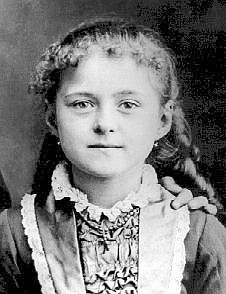Ferial Day in the Epiphany
THE ADORATION OF THE MAGI – MARY’S PLACE (Mt. 2:11)
1. The Gospel is always concise, and it refers all things to Jesus; it says nothing about the thoughts and feelings of Mary, when she received this wonderful, and wholly unexpected visit of the Wise Men of the East. We may try to understand these feelings, which she pondered in her heart.
2. Petition: Greater love and reverence for the Mother of God, and deeper trust in her powerful intercession.
I. “They Found the Child with Mary, His Mother”
When the shepherds came to adore the Saviour in the manger the presence of St Joseph is explicitly mentioned by St Luke. When the Wise Men adore Christ, St Matthew simply says, “They found the Child with Mary, His Mother.” It was not necessary to mention St Joseph, but Mary’s name could not be omitted. Without His Mother this Child would not be thinkable, and without her we would not be able to find Him!
When the Wise Men entered the house, “they found the Child with Mary,” they saluted His Mother, and praised her, “and falling down they adored Him.” Mary, holding Jesus in her lap, gazed with wonder at these distinguished pilgrims, absorbed in prayer at the feel of her Child, and she praised God for the great things He had done to her. After the Wise Men had adored the King, and offered Him their gifts, they entered into conversation with Mary, and told her about their journey and about the star. St Luke, who is always anxious to tell us all he knows about the Blessed Virgin, says that, on the occasion of the adoration of the shepherds, “all that heard wondered; and at those things that were told them by the shepherds. But May kept all these words, pondering them in her heart” (Luke 2:18,19). On this occasion Mary does the same.
Perhaps our childish curiosity would fain know how she used the gifts of the Wise Men: that hardly matters. But the story of the call of the Wise Men, and the mystical meaning of her oblations, “these things she kept pondering in her heart.”
II. Mary’s Thoughts and Feelings
Did Mary see a connection between the prophecy of the Angel Gabriel on the day of the Annunciation, and the royal gifts, which the Wise Men had brought to the new born King? Did Mary now remember the prophetic words of aged Simeon, the “just and devout man,” on the occasion of the Presentation in the Temple (which must have preceded the visit of the Wise Men): “My eyes have seen the salvation, which thou hast prepared before the face of all peoples, a light to the revelation of the Gentiles, and the glory of thy people Israel” (Lk. 2:30,31). Were these men, who had come from so far, the first Gentiles to whom it was given to see this Light? Still these other words of Simeon: “Behold this child is set for the fall and for the resurrection of many in Israel, and for a sign which shall be contradicted. And thy own soul a sword shall pierce” (Lk. 2:34,35). Did Mary recollect these words when the myrrh was offered her, and when so soon after, she received the command to flee in order to preserve the life of the child? We can presume that Mary was privileged gradually to fathom the mystery of our salvation through suffering, death and resurrection; and as the veil was slowly lifted, she accepted it all, and again uttered a loving and unconditional Fiat: God’s Will be done.
It is by trying to understand better the thoughts and feelings of Mary, that we shall grow familiar with the thoughts and feelings of her divine Son: for Mary’s Heart was ever most like unto the Heart of Jesus.
We admire her greatness and her lowliness; we gaze on her as on a living “monstrance”, offering the Child on her lap for the adoration of the Wise Men, and of all of us, and she herself was all the while the most humble and most loving worshipper of all.
III. “Show unto Us the Blessed Fruit of Thy Womb”
This had been Mary’s privilege at Bethlehem with the Shepherds, and here again with the Wise Men. When they arrived this was their prayer: “Show us the Fruit of they womb.”
Are not we also, traveling on a long journey, weary and footsore, seeking Him, who by the star of our faith has called us “out of darkness into his marvelous light”? (1 Peter 2:9) We shall find Him only with Mary, His Mother. She will show Him to us, for He is her Son: and she conceived and bore Him, that we might be saved.
Who for us incarnate
Did not thee despise.
Qui pro nobis natus
Tulit esse tuus.”
Thus the Church sings in the Ave Maris Stella. One day Mary’s greatest joy will be to show us, after we have been released from this exile, “the Blessed Fruit of her womb”.
Prayer: Alma Redemptoris Mater:
Mother of Jesus, heaven’s open gate
Star of the sea, support the fallen state
Of mortals, Thou whose womb thy Maker bore;
And yet, strange thing, a virgin as before;
Who didst from Gabriel’s Hail this news receive,
Repenting sinners by thy prayers relieve.
And show us the Fruit of Thy womb, our Saviour and our everlasting bliss.
Labels: Alone with God by Fr J Heyrman S.J., Ferial Day in Epiphany


























0 Comments:
Post a Comment
<< Home